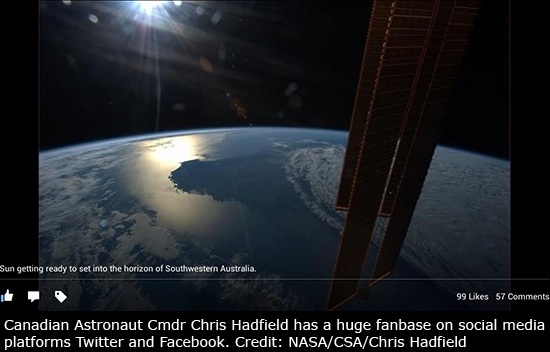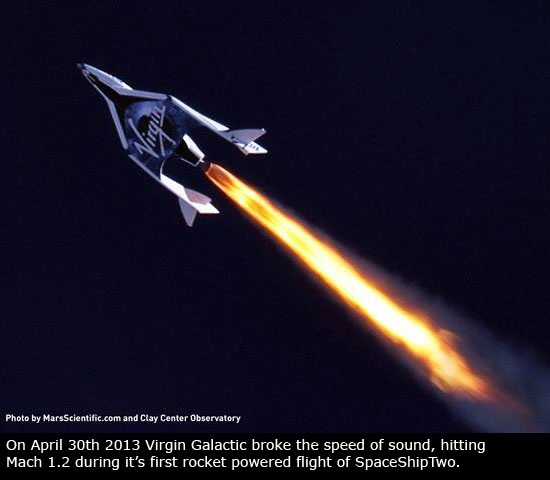SpaceX and the business of space

We are at a key juncture in the future of human aviation and the future of spaceflight is now no longer just a government affair.
Once upon a time, the race to explore the final frontier was a tussle between rival countries and governments. Now companies with some rather deep pockets have stepped into the fray, launching their own space endeavours.
A new dynamic has emerged, where businesses are working alongside government agencies like NASA to explore space for the benefit of mankind and possibly for profit.
It’s a necessary partnership though, as it seems as if the governments have put space exploration on the back-burner; preferring to use their funds towards matters more grounded on planet earth.
NASA tightens its belt
NASA is on the edge of a rather pivotal budget cut. A cut that could see it further rely on either companies or a rival nation’s space programs to fulfil its ambitions.
The group’s chief of human exploration William Gerstenmaier recently told US Senate Commerce, Science and Transportation subcommittee that if this 2014 NASA budget cut goes ahead then “it can't deliver the programs that we committed to you that we would deliver”
“This is really going to be tough for us moving forward,” he said.
Even with the commercial partners like SpaceX, the group needs more funding to fulfil its goals. A recent internal NASA memo from late March 2013 shows just how poorly thought out long term space policy in the USA is at the moment, stating that “effective immediately, all education and public outreach activities should be suspended, pending further review”.
Yet, this is perhaps NASA’s strength in this new era of space exploration. It plays a key role in promoting awareness and explaining the value of such endeavours. NASA's involvement still adds a touch of gravitas to every project, but there is little else on offer.
The current International Space Station (ISS) commander, Canadian astronaut Chris Hadfield has shown through his stellar social media efforts that a huge audience is interested in what NASA is up to. What many are not aware of is that his social media updates are a personal effort assisted by his son Evan on Earth, without any NASA assistance.

SpaceX Astronaut & Cargo Transport
In the midst of all this gloom and doom enter Elon Musk and Richard Branson. These two entrepreneurs are putting millions of their own dollars on the line in a bid to reignite sparks of innovation and enthusiasm in manned space flight.
Elon Musk is the co-founder of PayPal and electric car company Tesla Motors. Musk gained his fortune from selling Paypal and has since invested large portions of it in Tesla Motors and SpaceX along with venture capital partners.
Under President Obama’s bold and controversial new space policy, NASA abandoned the troubled Constellation program to develop the next generation of spacecraft and booster vehicles to replace the aging space Space Shuttle fleet.
Instead it offered seed funding and the possibility of lucrative service contracts to entrepreneurial commercial spaceship manufacturers like SpaceX, to provide workhorse transport vessels to and from the ISS. The idea is to let NASA focus on flying to Mars and so-called "near-Earth objects.
While several private companies competed to build NASA’s next heavy lift vehicles to carry cargo and astronauts to the ISS, SpaceX is in pole position, followed by Orbital Sciences.
Virgin galactic joyrides

Virgin Galactic has its roots in Scaled Composite’s SpaceShipOne concept team headed by Burt Rutan, which won the $US10 million dollar Ansari X Prize for the first non-government organisation to launch a reusable manned spacecraft into space twice within two weeks.
Richard Branson partnered with Scaled Composites to build two Five SpaceShipTwos (the first pair of which will be called Enterprise and Voyager in homage to Star trek) and 2 WhiteKnightTwos.
His Virgin galactic company has been taking deposits from aspiring rich joyriders for several years to go towards the full ticket price of approximately $US200,000.
For this princely sum a ticket holder will get to experience a flight to about 110km above Earth including a 6 minute period of weightlessness at the apogee (highest point of the flight’s orbit).
The 110km altitude was not chosen arbitrarily but because the Kármán line internationally recognised as the boundary between the Earth’s atmosphere and space lies at an altitude of 100 kilometres.
In reality the atmosphere simply gets thinner the higher you go above Earth so there is no actual visible line at 100km, the reason it was chosen is because above that altitude a spacecraft would have to fly faster than orbital velocity in order to derive sufficient aerodynamic lift from the atmosphere to support itself.
Virgin Galactic is not expected to have its maiden passenger flight until early-mid 2014 at the earliest.
Private sector flights to infinity and beyond?
There’s a role for everyone in this new era of space exploration.
Without NASA’s inspiring stories about space there won't be any prompts to make people ponder the possibilities of space exploration and its value. And without capital and interest from entrepreneurs, there wouldn’t be a program to begin with.
The era of the so-called 'Space Race' is over, and what we’ve been left with is a paradigm where investment in space exploration needs to be powered by either philanthropy or commercial intent.
For thousands of years mankind has gazed at the starry night sky, wondering what lies out there in our solar system and beyond. Assumptions that NASA alone will be leading the charge are now simply un-realistic – even for something as larger-than-life as space travel.
















